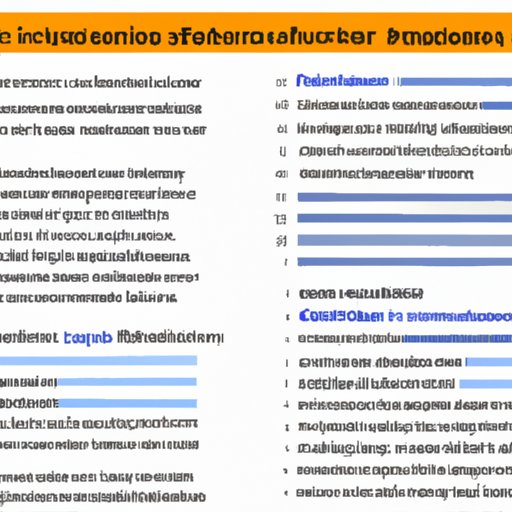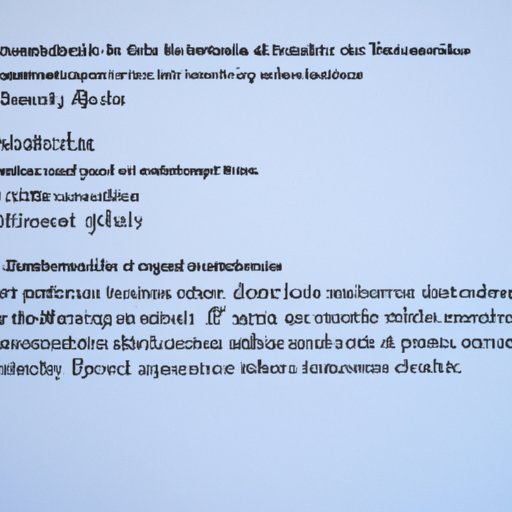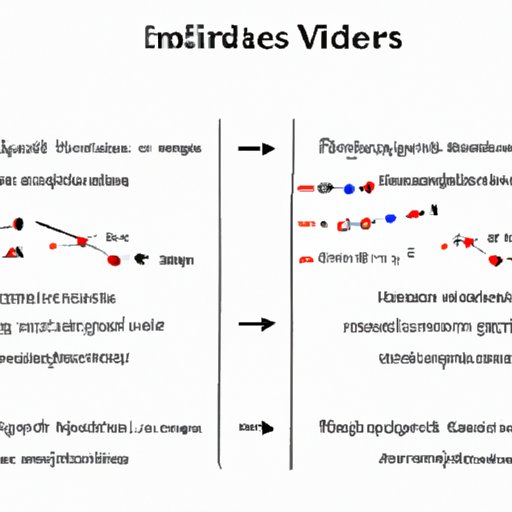Introduction
An independent variable is a variable used in scientific research to measure changes in a dependent variable. It is an important concept in science that must be understood in order to design and interpret experiments correctly. In this article, we will explore the meaning of independent variables in science and examine their role, function, and significance.
Exploring the Meaning of Independent Variables in Science
Independent variables are used in scientific research to measure changes in a dependent variable. The independent variable is the variable that is manipulated or changed in order to observe its effect on the dependent variable. For example, if a researcher wants to study the effect of temperature on plant growth, the independent variable would be the temperature and the dependent variable would be the plant growth.
There are many different types of independent variables that can be used in scientific research. These include experimental variables, such as the type of treatment given to a group of subjects, or environmental variables, such as the amount of light given to a group of plants. Other types of independent variables include demographic variables, such as gender or age, and psychological variables, such as attitude or motivation.
Understanding the Role of Independent Variables in Scientific Research
Independent variables play an important role in the scientific method. They are used to test hypotheses by manipulating them in order to observe their effect on the dependent variable. For example, if a researcher wants to test the hypothesis that higher temperatures will lead to faster plant growth, they can manipulate the independent variable (temperature) and observe the effect on the dependent variable (plant growth).
In addition to testing hypotheses, independent variables can also be used to control for other factors that may influence the results of an experiment. This is important because it ensures that any observed effects are due to the manipulation of the independent variable and not other confounding factors.

An Overview of How Independent Variables Affect Experiments
When designing experiments, it is important to control for the independent variable. This means that all other factors that may influence the results must be kept constant, so that any observed effects can be attributed to the manipulation of the independent variable. For example, if a researcher wants to study the effect of temperature on plant growth, they must make sure that all other environmental conditions, such as light and soil nutrients, remain constant.
In addition to controlling the independent variable, it is also important to be aware of how it can affect the results of an experiment. For example, if the independent variable is not manipulated properly, or if it is too extreme, it can lead to invalid results. Therefore, it is important to ensure that the independent variable is manipulated in a controlled and systematic manner.

Defining the Function and Significance of Independent Variables in Science
Independent variables play an important role in scientific research. They are used to measure changes in the dependent variable and to test hypotheses. In addition, they are used to control for other confounding factors that may influence the results of an experiment.
Independent variables produce quantitative data, which means that they measure changes in the dependent variable. For example, if a researcher wants to measure the effect of temperature on plant growth, they would measure the change in the plant growth over time at different temperatures.

Examining the Impact of Independent Variables on Scientific Results
It is important to be aware of how independent variables can affect the results of an experiment. If the independent variable is not manipulated properly, or if it is too extreme, it can lead to invalid results. In addition, if the independent variable is not controlled for other confounding factors, the results of the experiment may be biased.
For example, if a researcher wants to study the effect of temperature on plant growth but fails to control for other environmental factors, such as light and soil nutrients, the results of the experiment may be skewed. Therefore, it is important to ensure that the independent variable is manipulated in a controlled and systematic manner.

Analyzing the Relationship Between Independent Variables and Dependent Variables
The manipulation of the independent variable affects the dependent variable. This relationship can be used to test hypotheses and interpret the results of experiments. For example, if a researcher wants to test the hypothesis that higher temperatures will lead to faster plant growth, they can manipulate the independent variable (temperature) and observe the effect on the dependent variable (plant growth).
This relationship between independent and dependent variables has important implications for scientific research. It is important to understand how the manipulation of the independent variable affects the dependent variable in order to interpret the results of experiments accurately.
Investigating the Uses and Benefits of Independent Variables in Science
Independent variables are useful tools for testing hypotheses and interpreting the results of experiments. They allow researchers to measure changes in the dependent variable and to control for other confounding factors. In addition, they can be used to test theories and validate results.
The use of independent variables also has several advantages. For example, they provide more accurate and reliable results than other methods, such as surveys or interviews. In addition, they allow researchers to isolate specific factors that may influence the results of an experiment.
Conclusion
In conclusion, independent variables are important concepts in science that must be understood in order to design and interpret experiments correctly. They are used to measure changes in the dependent variable and to test hypotheses. In addition, they are used to control for other confounding factors and to validate the results of experiments. Understanding the meaning and significance of independent variables is essential for conducting successful scientific research.
(Note: Is this article not meeting your expectations? Do you have knowledge or insights to share? Unlock new opportunities and expand your reach by joining our authors team. Click Registration to join us and share your expertise with our readers.)
